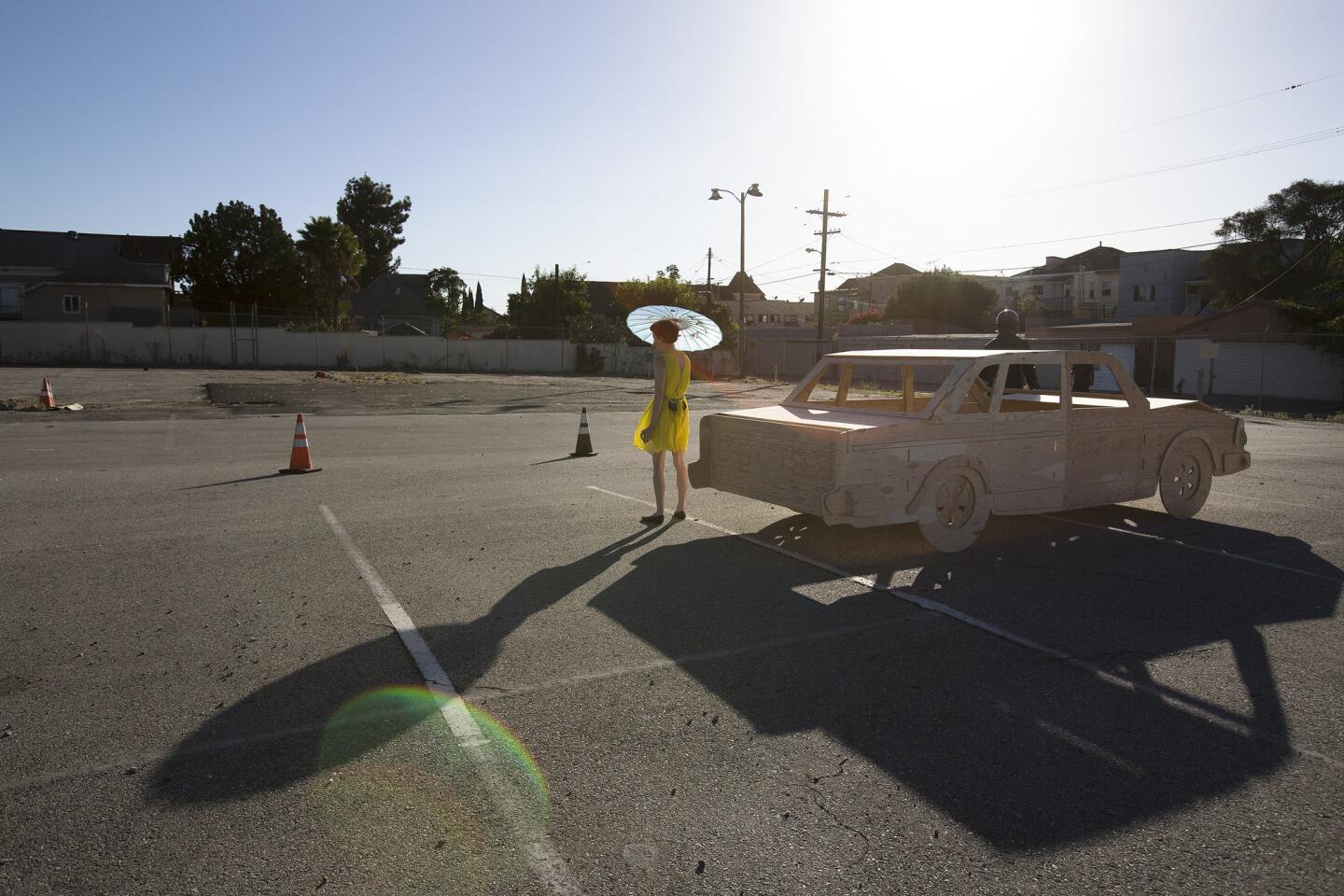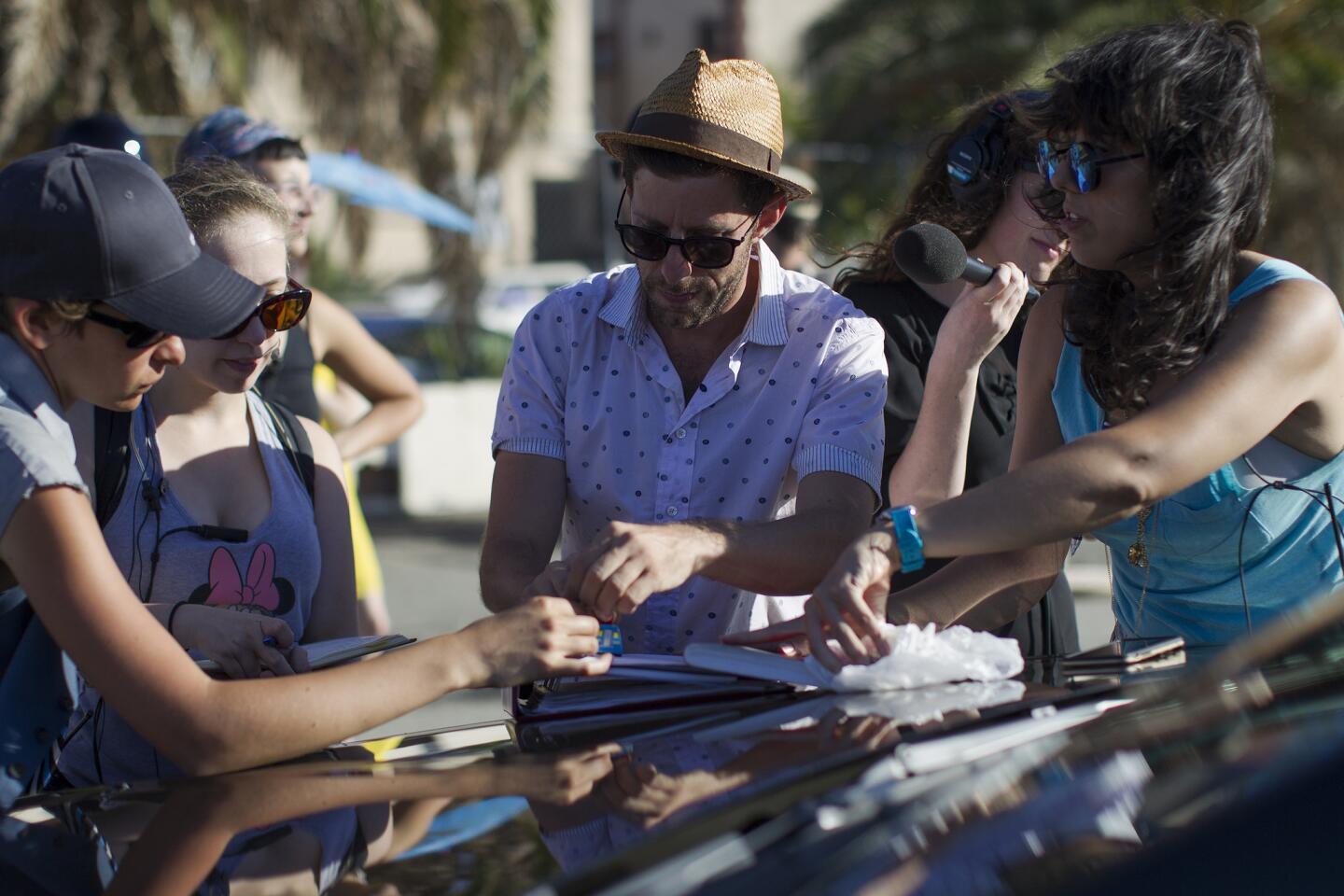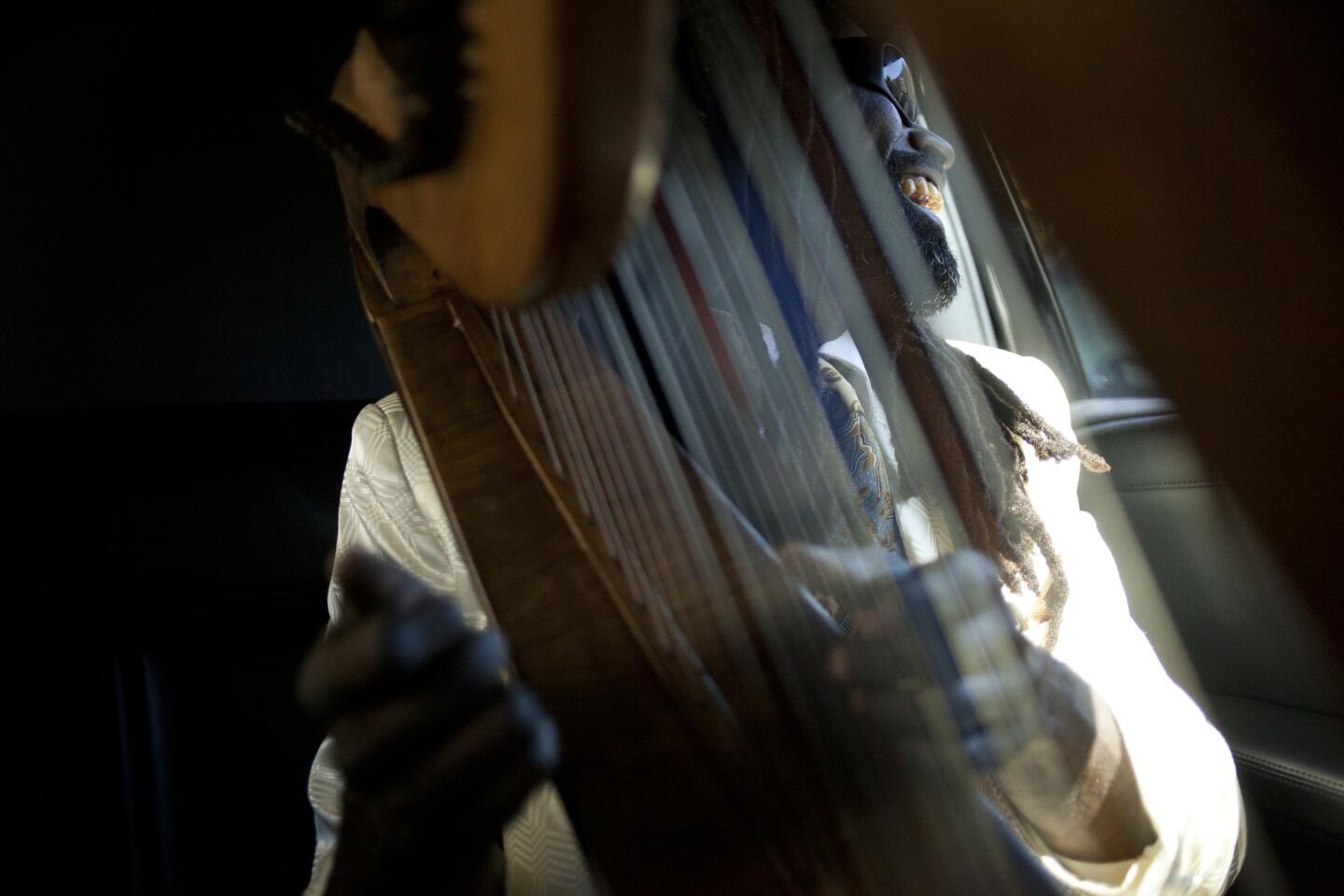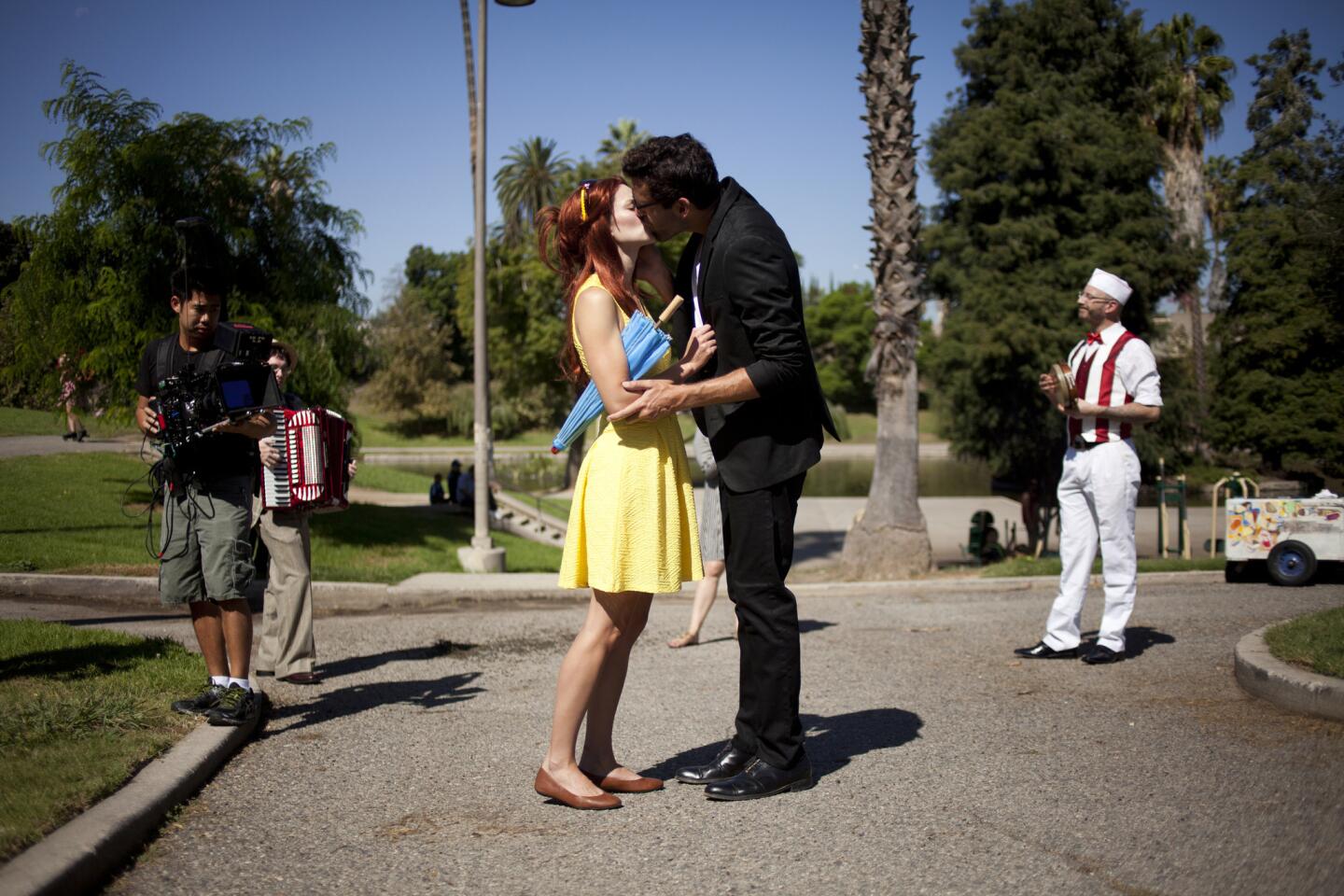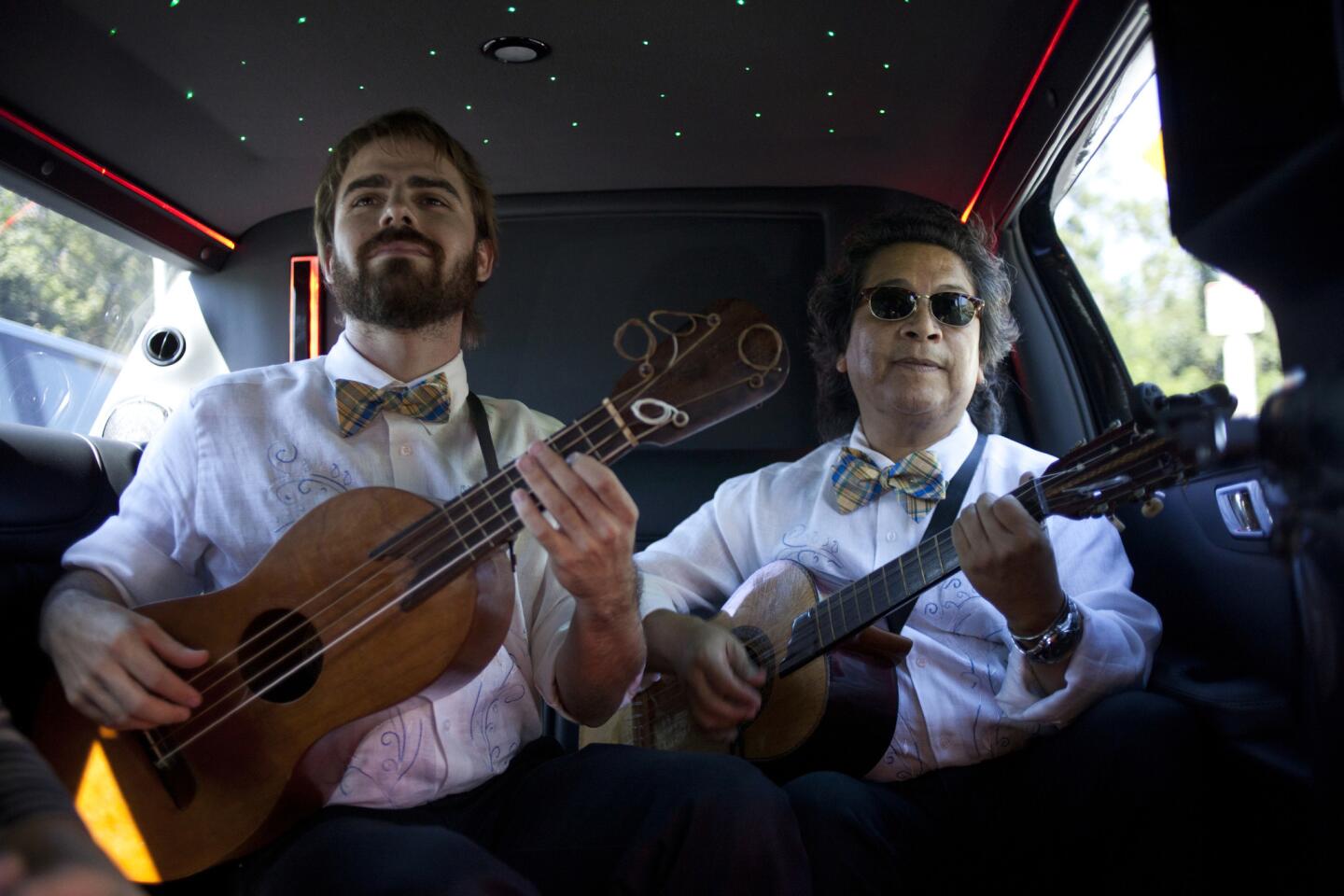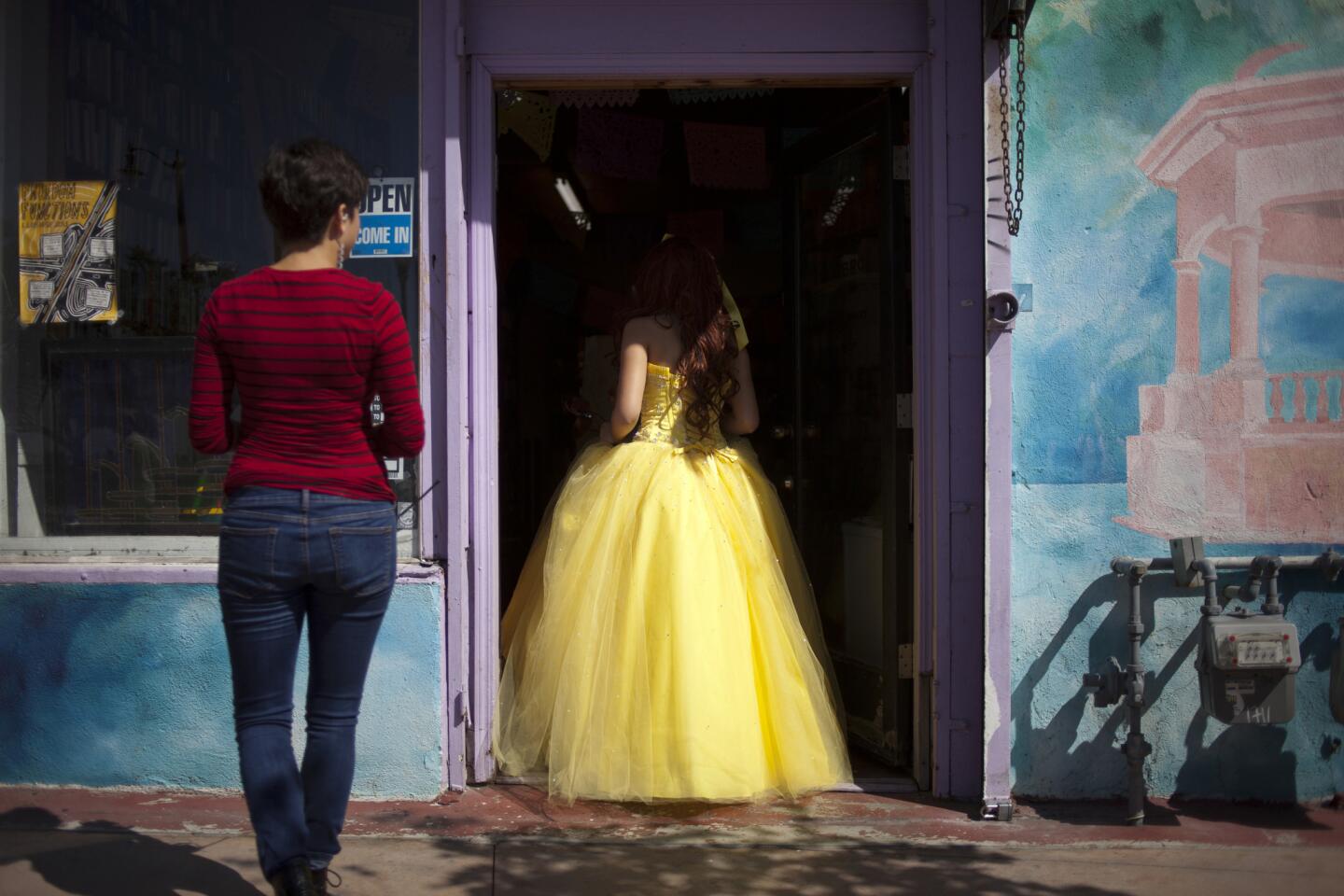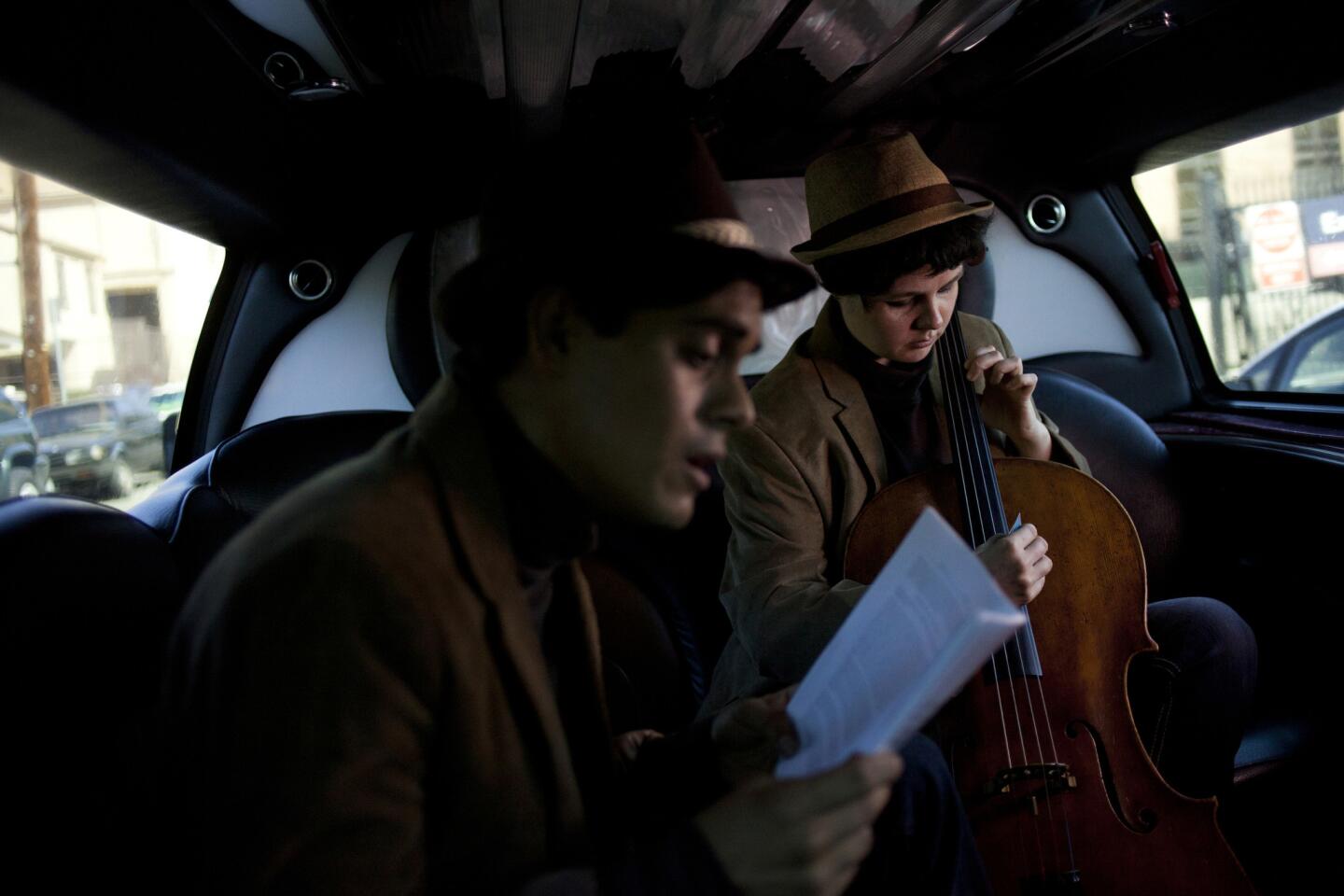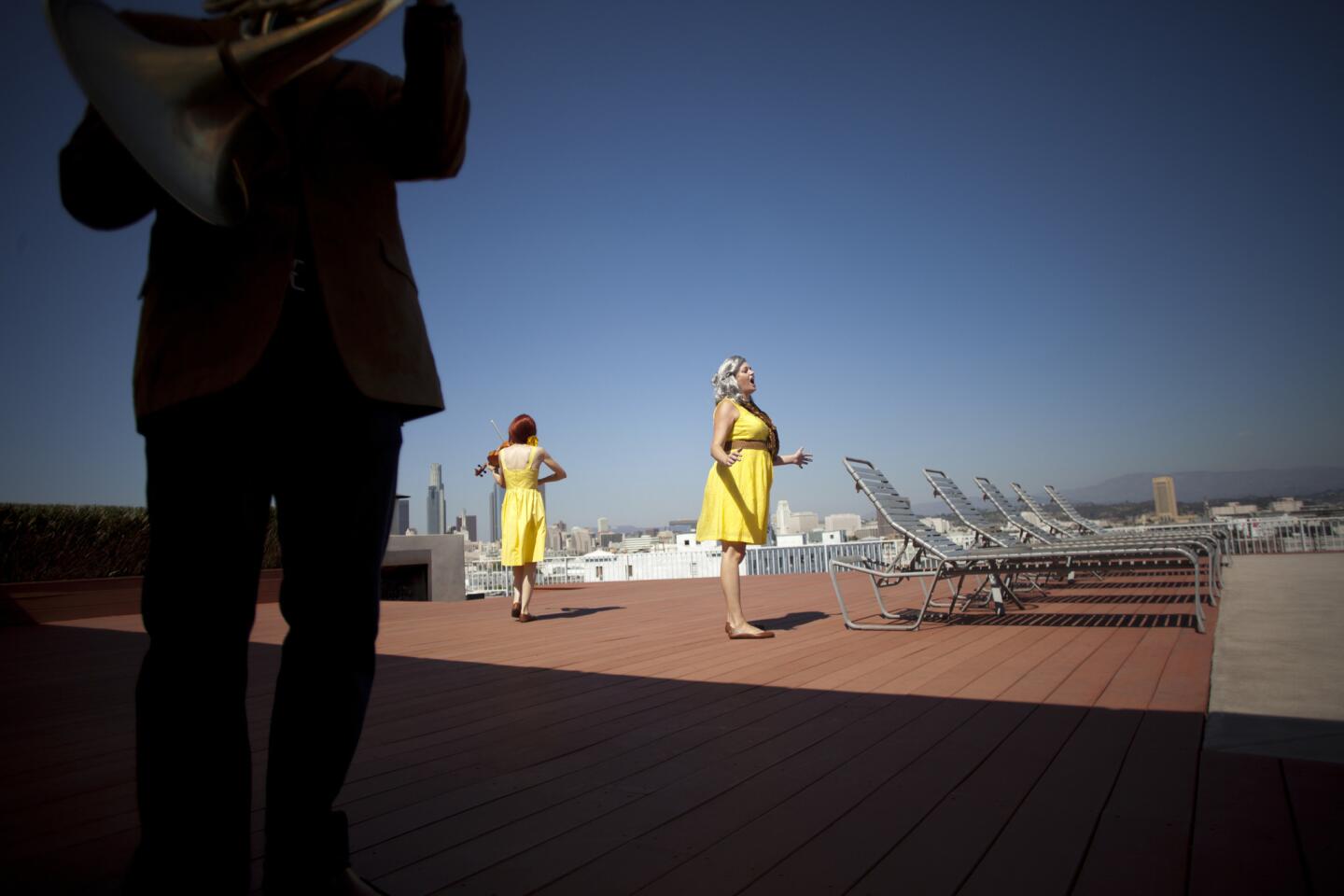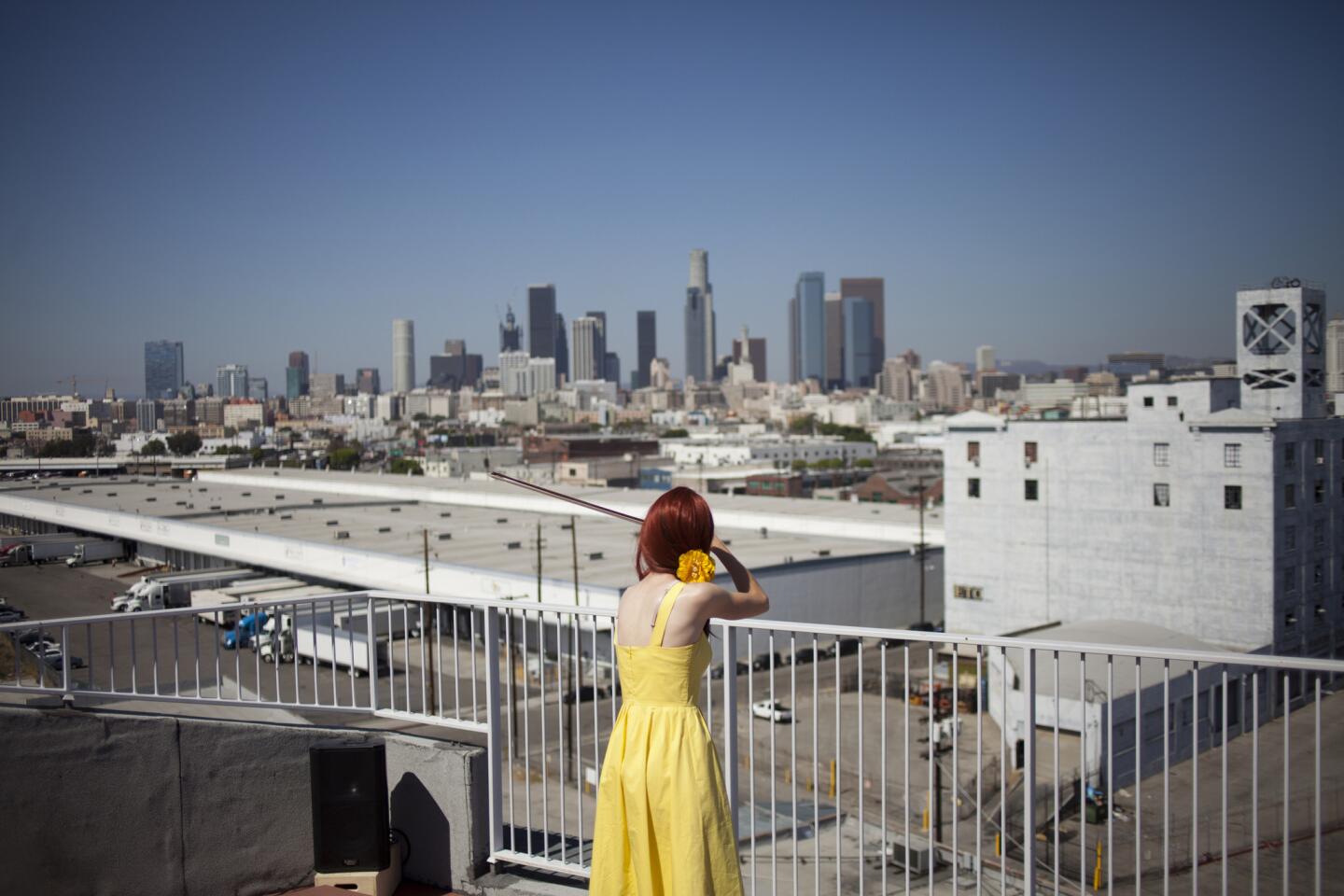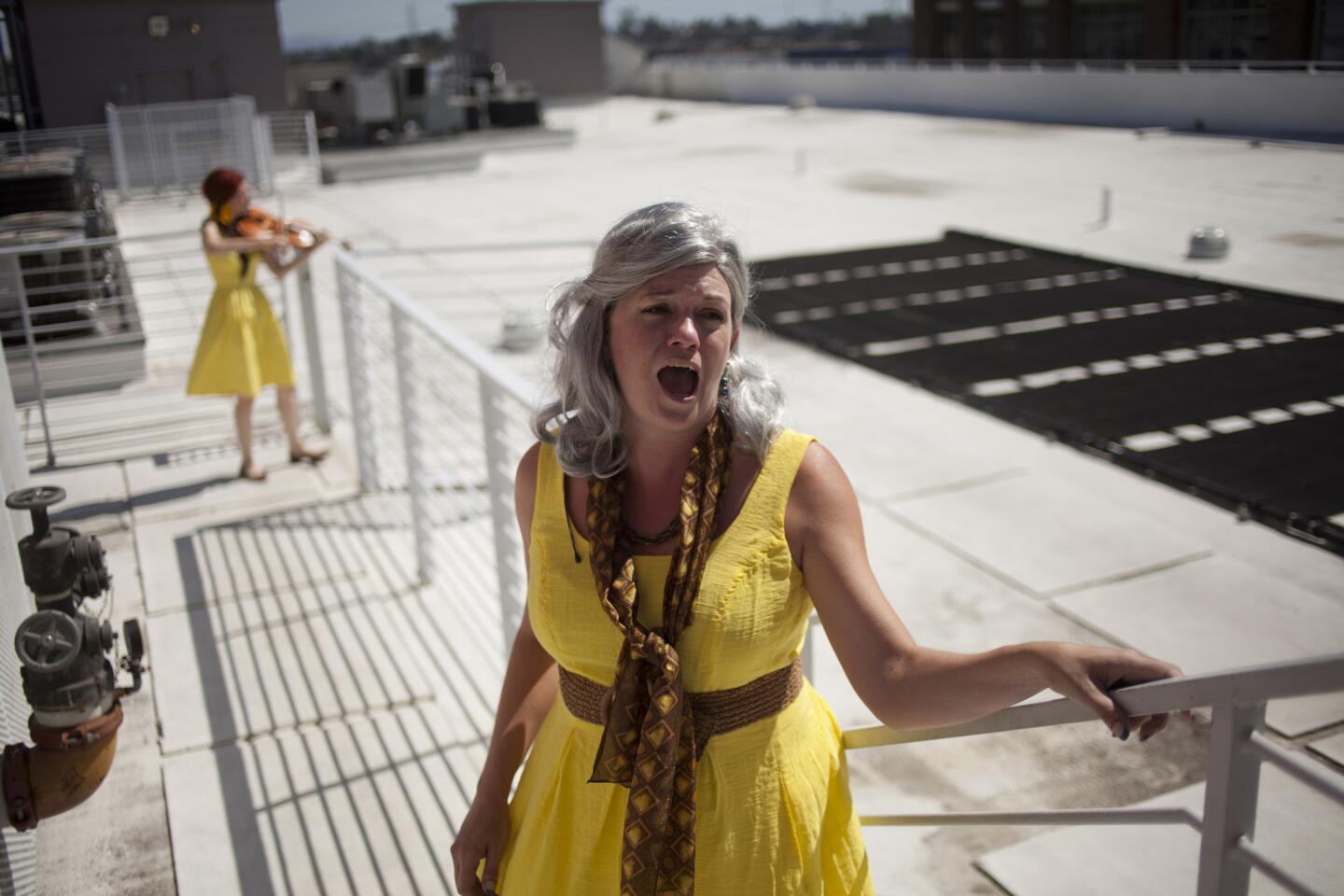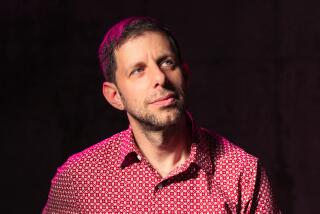‘Hopscotch,’ the world’s first mobile opera, will take to L.A. streets in 24 cars
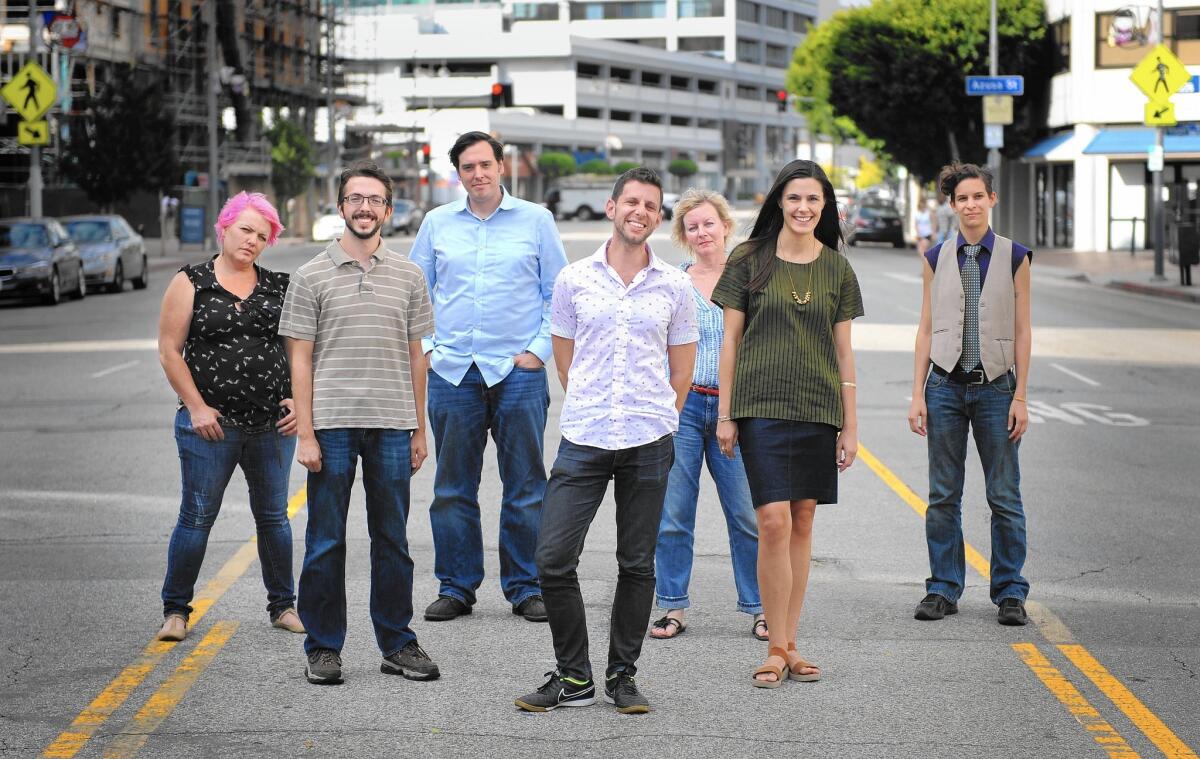
The world is getting its first mobile opera performed live in cars, and fittingly the stage is the streetscape of Los Angeles. Called “Hopscotch” and presented by the experimental opera company the Industry, the breathtakingly complex production is shaping up to be one of the most audacious cultural events of the year.
It comes two years after the Industry’s critically lauded immersive opera “Invisible Cities,” a modern take on Italo Calvino’s 1972 eponymous Italian novel that unfolded amid the hustle of downtown’s Union Station. Audience members followed the action through the station while listening to the music on wireless headsets.
“Hopscotch,” which will be performed three times daily on weekends Oct. 31 to Nov. 15, makes “Invisible Cities” seem like “Chopsticks.” Artistic director Yuval Sharon and production designer Jason H. Thompson have dreamed up an idea so far-fetched, the main production question has simply been “Is this viable?”
FULL COVERAGE: Fall arts guide 2015
“We’re telling the audience, ‘Just trust us. You don’t know where you’re going, but if you get in this car, you’ll get back to your original car safely,’” Sharon says, sitting at a round table in the Industry’s downtown offices surrounded by six creative collaborators. “What will happen to your experience of the city and the landscape if you don’t know where you’re going?”

“Hopscotch” will be performed three times daily on weekends Oct. 31 to Nov. 15. Artistic director Yuval Sharon and production designer Jason H. Thompson have dreamed up an idea so far-fetched, the main production question has simply been “Is this vi
The unadorned room is about the size of a bathroom in a Bel-Air mansion, but with none of the bling. A few desks squat in a corner across from a water cooler. The most prominent feature in the space is a wall stacked high with boxes of low-fat Pop Chips given to Sharon by a friend. It looks like a place where you might get your passport photo taken, not a creative sanctuary working out the logistics of how to perform opera in 24 moving cars.
The 90-minute performance unfolds along three geographical routes that wind through downtown and the east side of Los Angeles. Each of those routes (red, yellow or green) will have a car with four audience members plus actors, singers and musicians performing along the way and at sites where cars stop during the show. Each route is divided into 10-minute chapters, all taking place in different cars, so there is quite a bit of changing vehicles.
The chapters are presented in nonchronological groups of eight, so no route contains the entirety of the show, but each route stands alone as a total experience.
Though space in the cars will be severely limited, all of these chapters, plus some additional ones featuring the animation of six artists, can be seen at the “central hub”: a temporary structure on the Southern California Institute of Architecture’s parking lot in downtown L.A. (In keeping with the car theme, SCI-Arc faculty members Constance Vale and Emmett Zeifman designed the central hub out of recycled billboard vinyl.)
Inside, 24 monitors will be arranged in a circle with benches. Admittance will be free and open to as many as 180 people first come, first served. Each of the car-based 24 chapters will be streamed to the hub, and audience members will choose which to hear using hi-fi headphones. At the end of each day (three shows per day will be scheduled), all 24 cars will arrive at the central hub for a grand finale.
Got it?
“When I tell people some of the logistic details their heads start spinning,” Sharon says, laughing.
Watching him in this tiny office, with its distinct lack of technical prowess, it’s easy to wonder if he isn’t just making this up. “Hopscotch” is something of a fantasy, one concocted more than two years ago. A relentless fundraising drive brought in nearly $700,000 from foundations and individual support. Another $300,000 is expected from ticket sales, which start Wednesday.
“Hopscotch” is a modern retelling of Orpheus and Eurydice: the tragic love of Orpheus, son of the muse Calliope, for his wife, Eurydice, whom he follows to the underworld with his lyre in an ill-fated attempt to return her to life. Sharon’s version is set in L.A. and features a Latina protagonist named Lucha. The music, which is modern opera reflecting both the sunny hues and noir underpinnings of its chosen city, has been written by six Los Angeles composers — Veronika Kausas, Marc Lowenstein, Andrew McIntosh, Andrew Norman, Ellen Reid and David Rosenboom. They met to share their work but ultimately created different sounds for each chapter, a range that includes experimental music, improvisation, folk traditions and “large scale quotations of Monteverdi,” Lowenstein said.
In May donors and potential donors were treated to a sneak peek of the opera and festivities included a stop at singer-songwriter Michelle Shocked’s art-filled downtown loft.
“When I saw ‘Invisible Cities’ at Union Station I was transformed,” Shocked says. “I found Yuval and said, ‘You’ve got to let me in.’”
Shocked is featured in “Hopscotch” alongside a cast of 122 other musicians, singers and actors. The opera also includes a production team of 94 — stage managers, costume designers, audio advisors, technology coordinators and more, says production manager Ash Nichols, an upbeat young woman of relentless energy.
SIGN UP for the free Essential Arts & Culture newsletter >>
Nichols is overseeing technical details, including the complicated issue of the cars, provided by Wilshire Limousine Services. Three models will be employed to chauffeur cast and audience from site to site. Vice president of operations, Michael Kushner, has volunteered to have his drivers wear costumes if need be.
“For the most part we’re not doing anything out of the ordinary on the streets,” Nichols says. “What’s unusual is what’s happening inside the cars.”
Kushner has also helped to figure out which limo should be paired with which chapter, since some passages of the opera have more complicated audio and power requirements than others. Production designer Thompson and lead AV technician Edward Carlson are making sure livestreaming to the central hub goes off without a hitch. Sometimes the camera in the limo will be stationary, and at other times audience members will be invited to wield it.
“We’re so used to this idea of double-looking as a culture,” Thompson says. “People watch rock concerts through their phones.”
The way we consume culture as a society, whether we are informing our reality through camera phones or other devices, is part of what motivates Sharon and the Industry. In one of the many testing phases for “Hopscotch,” Thompson drove around the city with an opera singer in his back seat. (“It’s like a car commercial, it’s the best!” he says.) The team behind “Hopscotch” wants to know if audience members will see the city differently when they don’t know where they’re going, and it’s fascinated with how the other half of the audience — the incidental, nonticket-buying audience, the passersby — will react to the show.
“This isn’t complete until you have an audience that has paid and knows what they’re in for and an audience that doesn’t even know this exists,” executive director Elizabeth Cline says. “That’s when the art really happens.”
The Industry worked closely with Aram Sahakian, who oversees special traffic operations at the L.A. Department of Transportation, to make sure the driving routes would not require closures or police presence, both of which Sharon says would ruin the spirit of the show.
“I can’t imagine another city that would be so supportive and cooperative in making this happen,” Sharon says.
At their first meeting, Sahakian said that after the I-405 closure known as “Carmageddon,” anything is possible. Compared with that or with the bike festival CicLAvia, “Hopscotch” is child’s play. The Industry presented the DOT with the routes it wanted to travel, and the DOT presented the group with workable maps. (The Industry is not revealing specifics of the routes, saying that the less the audience knows the better.)
“I’m proud of this celebration of our city. These routes show off the depth and history of this place, they show how diverse our communities are and how much art there is on the street,” co-costume designer Ann Closs-Farley says. “It also gives you the opportunity to enjoy the ride, and I don’t know how many people go for a ride in Los Angeles anymore.”
Adds Sharon, “With no destination in mind, just for the freedom of the open road.”
-------------------
‘Hopscotch’
Who: The Industry
Where: Live performances in vehicles driving through downtown and the east side of Los Angeles (meeting points given with purchase of tickets). Live-streaming monitors on view at Central Hub, 960 E. 3rd St., Los Angeles
When: 10:45 a.m., 12:45 and 2:45 p.m. Saturdays and Sundays, Oct. 31 through Nov. 15
Tickets: $125 for a vehicle seat in the 10:45 or 12:45 performances; $155 for a vehicle seat in the 2:45 show, which includes a grand finale at the Central Hub. Admission to the live-streaming monitors at the Central Hub is free and limited to 180 people first come, first served.
Info: www.hopscotchopera.com
MORE:
With David Bennett in charge, San Diego Opera may get a bit wild -- but not crazy
A darker, grittier ‘Phantom of the Opera’ haunting Pantages
San Francisco Opera looks backward with the World War II-set ‘Two Women’
More to Read
The biggest entertainment stories
Get our big stories about Hollywood, film, television, music, arts, culture and more right in your inbox as soon as they publish.
You may occasionally receive promotional content from the Los Angeles Times.
